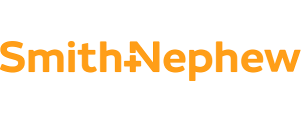
Protocols to Prevent SSIs and SSCs: Initiatives to Improve Outcomes
Protocols to Prevent SSIs and SSCs: Initiatives to Improve Outcomes
[Sponsored] Hospital-acquired conditions, such as surgical site infections (SSIs) and complications (SSCs), are a major burden to the U.S. health care system. With 60% of SSIs considered to be preventable, clinical protocols can make a critical difference in avoiding delayed discharges, costly readmissions, and delayed healing post-surgery. In this executive dialogue, nurse executives discuss how organizations can reduce the incidence of SSIs and SSCs through greater transparency, collaboration and enhanced clinician and patient education.
This executive dialogue will highlight key findings on:
- Continued fatigue from the COVID-19 pandemic presents an ongoing challenge for hospitals and health systems. Emphasis must be placed on adherence to handwashing and basic infection prevention techniques to prevent and manage SSIs and SSCs.
- Identifying risk factors for SSIs enables targeted education to prevent their occurrence. One solution is to implement a pre-surgical preparation clinic to work closely with high-risk patients in the weeks leading up to their procedure.
- Data is a strong influencer and can significantly impact clinician behavior. Organizations should consider sharing individual performance data in advance of team meetings to facilitate a productive discussion.
- Additional guidelines are needed to identify when to delay surgery for patients at high-risk for infections.
- Gaps in patient education can result in post-discharge infections leading to readmissions. Organizations should reassess their patient education and develop easy to understand guidelines for wound care and conduct patient follow-up calls post-discharge.
Sponsored by


Related Resources
Today in Nursing Leadership Podcast
Nurses and leaders are experiencing moral adversity that can lead to various types of moral suffering. Cynda Rushton discusses an evidence based…
Sponsored White Papers
AMN Healthcare’s SPECIAL REPORT on the 2021 Survey of Registered Nurses, Nursing and the Nation: Extreme Challenges, Extraordinary Impact illustrates…
Today in Nursing Leadership Podcast
Health care is hungry for exemplary nursing leadership for the future. Traditional approaches/structures are no longer adequate. Tim Porter-O'Grady…
Sponsored Content
Using technology to improve patient care and staff efficiency.
Artificial intelligence, predictive analytics and remote monitoring tools hold great…
Today in Nursing Leadership Podcast
Rose Hedges and Carmen Kleinsmith discuss how clinicians used an open culture of frontline innovation to build just-in-time devices for COVID-19…


